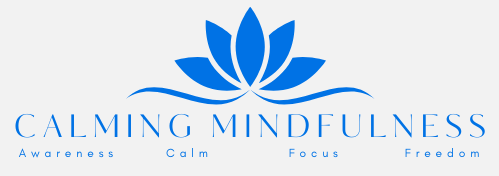Meditation and ADHD: Harnessing Mindfulness for Enhanced Focus

Meditation and mindfulness are increasingly gaining attention for their potential benefits in managing Attention-Deficit/Hyperactivity Disorder (ADHD), a condition characterized by symptoms such as inattention, hyperactivity, and impulsivity. Traditional treatment for ADHD has primarily focused on medication and behavioral therapies. However, meditation and mindfulness offer complementary approaches that aim to cultivate a sense of present-moment awareness and stillness, which may be particularly beneficial for individuals with ADHD who often experience a rapid flow of thoughts and heightened distractibility.

Researchers are exploring how these practices may improve focus, reduce symptoms of anxiety and depression, and enhance overall quality of life for those with ADHD. Mindfulness, a key component of meditation, involves paying attention to thoughts, feelings, and sensations in a non-judgmental way, which can be challenging for individuals with ADHD. However, with practice, mindfulness techniques are thought to potentially improve emotional regulation and reduce the stress associated with ADHD.
While the scientific community continues to investigate the scope of meditation and mindfulness as effective strategies for ADHD, preliminary studies show promise. They suggest that these practices can help in developing greater self-awareness, leading to improved attentional control. Nevertheless, individuals with ADHD should consider meditation and mindfulness as possible elements of a broader management plan, complementing other established treatments, and always consult healthcare providers when making decisions about interventions.
Understanding ADHD
Attention Deficit Hyperactivity Disorder (ADHD) is a neurodevelopmental disorder characterized by patterns of inattention, hyperactivity, and impulsivity. It affects both children and adults, with symptoms often varying by age group.
Symptoms and Diagnosis
ADHD presents through a variety of symptoms that can be categorized into two main domains: inattention and hyperactivity-impulsivity.
- Inattention: Symptoms may include difficulty sustaining focus, trouble organizing tasks, and a tendency to make careless mistakes.
- Children: Might appear daydreamy or easily sidetracked.
- Adults: Often struggle with time management and meeting deadlines.
- Hyperactivity-Impulsivity: These symptoms include excessive talking, fidgeting, and an inability to wait one’s turn.
- Children: They may run or climb in situations where it is inappropriate.
- Adults: Adults may experience feelings of restlessness and impatience.
Diagnosis of ADHD is based on the presence of symptoms for at least six months. They must also be to a degree that is inconsistent with developmental level and that negatively impacts directly on social and academic/occupational activities. This is often done through assessments that may involve checklists, observations, and psychological testing.
ADHD in Children vs. Adults
ADHD often manifests differently through various stages of life:
- Children: The disorder is more easily identifiable, with hyperactivity as a prominent feature. Common behaviors include difficulty remaining seated, frequent interruptions, and trouble waiting their turn.
- School Performance: In children, ADHD symptoms often lead to academic challenges.
- Social Interaction: Children with ADHD might have difficulties with socialization, often exhibited by interrupting or intruding on others.
- Adults: Symptoms might be less overt than those in children, and hyperactivity may subside somewhat.
- Workplace Issues: They might face troubles such as forgetfulness in daily activities and difficulty managing sequential tasks.
- Lifestyle Impact: Due to impulsivity and inattention, maintaining relationships and adhering to societal norms can be challenging.
It is crucial to understand that ADHD is not limited to childhood and can persist into adolescence and adulthood. Early diagnosis and intervention are key to managing ADHD effectively.
Meditation and Mindfulness as Interventions
Meditation and mindfulness offer alternative approaches to managing ADHD symptoms by promoting sustained attention and emotional regulation.
Types of Meditation and Mindfulness Practices
Various forms of meditation are employed to help individuals with ADHD. Mindful meditation is a widely practiced technique in which individuals focus their attention on their breath, fostering an enhanced sense of awareness. The practice of mindfulness meditation goes further to develop a nonjudgmental awareness of the present moment. Both practices improve concentration by guiding the mind away from distractions.
On the other hand, Mindfulness-Based Stress Reduction (MBSR) and Mindfulness-Based Cognitive Therapy (MBCT) are structured programs that incorporate mindfulness practices alongside cognitive behavioral principles. MBSR emphasizes breathing exercises, yoga, and meditation to alleviate stress. MBCT combines traditional meditative practices with cognitive exercises, aiming to interrupt automatic cognitive processes associated with ADHD.
Efficacy of Mindfulness-based Interventions
Evidence on the effectiveness of mindfulness-based interventions for ADHD shows promise. Research indicates that these practices can enhance sustained attention and emotional regulation among individuals with ADHD. Studies have documented improvements in the ability to maintain focus and manage disruptive emotions post-intervention. Specifically, MBCT has shown potential in reducing inattentiveness and hyperactivity, while MBSR is noted for its role in stress reduction, which indirectly benefits attentional control. However, it is essential to acknowledge that outcomes can vary, and continued practice is often required to maintain the benefits.
Impacts on Daily Life and Relationships

ADHD can significantly affect daily activities and interpersonal relationships through its influence on behavior, executive functioning, and emotion regulation.
School and Work Performance
Individuals with ADHD often face challenges at school and in the workplace that stem from difficulties with focus, organization, and time management. They may struggle to listen attentively to instructions or complete tasks efficiently, which can lead to problems with academic or job performance.
- Focus: Maintaining consistent attention on tasks can be difficult, leading to incomplete or inconsistent work.
- Organization: They may find it hard to keep track of assignments or work-related projects, often resulting in missed deadlines.
- Time Management: Poor time management may manifest as persistent tardiness or inability to manage workload within given time frames.
Social Connections and Family Dynamics
ADHD impacts social connections and family dynamics, primarily through its effects on behavior and emotion regulation. Relationships can be strained by the symptoms of ADHD, as they affect communication and understanding between individuals.
- Listening: Challenges in staying engaged in conversations can lead to misunderstandings and frustration among peers and family members.
- Organization: Difficulty in organizing one’s daily life can contribute to tensions in relationships. This is especially true if responsibilities within the home are neglected or unevenly distributed.
- Emotion Regulation: Individuals with ADHD may display heightened emotional responses, sometimes leading to conflict or strained interactions with others.

Conclusion
In conclusion, the integration of meditation and mindfulness practices into the management of Attention-Deficit/Hyperactivity Disorder (ADHD) represents a promising avenue for enhancing attentional control and emotional regulation. While traditional treatments like medication and behavioral therapies remain cornerstone approaches, the growing body of research suggests that meditation and mindfulness can offer valuable complementary strategies.
These practices, encompassing techniques such as mindful meditation, Mindfulness-Based Stress Reduction (MBSR), and Mindfulness-Based Cognitive Therapy (MBCT), aim to cultivate present-moment awareness and non-judgmental acceptance of thoughts and feelings. For individuals with ADHD, who often grapple with a whirlwind of thoughts and heightened distractibility, the development of such skills could be particularly beneficial.
Preliminary studies indicate that mindfulness-based interventions hold potential in improving sustained attention, emotional regulation, and overall quality of life for individuals with ADHD. However, it’s essential to recognize that outcomes may vary, and continued practice is often necessary to maintain benefits.
As we navigate the complexities of managing ADHD, it’s crucial to view meditation and mindfulness not as standalone treatments but as valuable components of a comprehensive management plan. Individuals with ADHD, along with their healthcare providers, should consider integrating these practices alongside other established treatments. By doing so, we can optimize the potential for enhanced attentional control, emotional well-being, and overall functioning in individuals living with ADHD.
